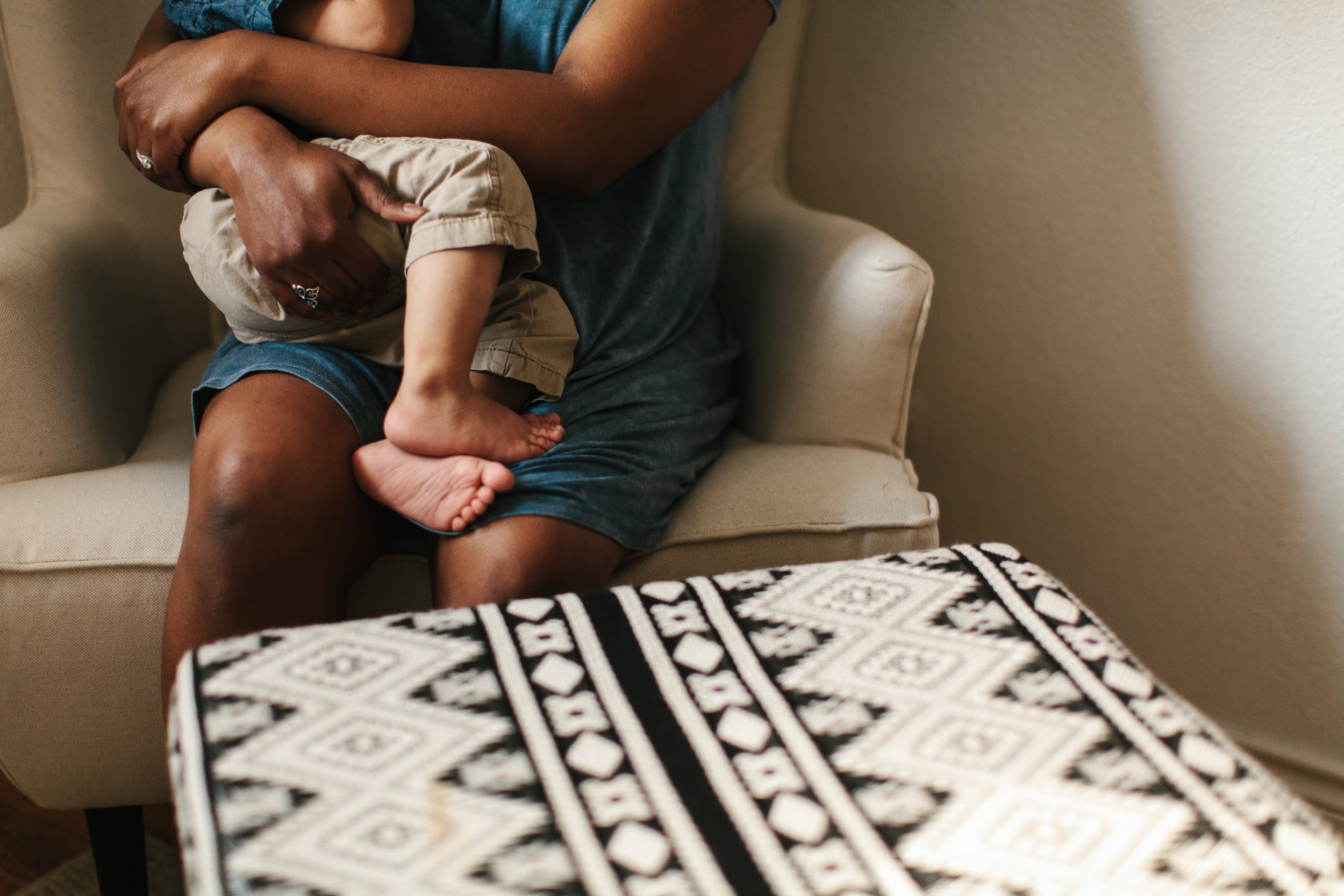
[[bpstrwcotob]]
Explore our content
God Over Our Differences
The gospel gives us eyes to see God’s beautifully unique work in the lives of other moms, rather than feeling threatened or inferior by comparison.
We Are Different, We Are Also the Same
We can teach our kids to celebrate differences—God created them so we can help each other.
Teaching to Love by Setting an Example
Helping kids understand and love others with different skin tones in a divisive world starts with teaching them the love of Christ for his people.
Making Peace with the Mom who Parents Differently
We don’t all “mom” the same way in the many gray areas of motherhood—things like food choices, education decisions, and movie options. We have freedom to decide what’s best for our family, in submission to God’s word, according to our personal consciences.
I Need a Father
When we think of God as Father, we realize we can run to him freely and confidently—no matter the situation.
When You Don’t Measure Up
When we realize we’re not enough and that we can’t live out our “right” way of doing motherhood, there is good news that frees us from shame.
Gospel-Hope for the Vulnerable Mom | An Interview with Tamra Call
Vulnerable moms are all around us—the park, the library, the local school, the store. They might have different concerns, worries, and privileges, but the value of their personhood and need for the gospel are the same. But how do we care for these neighbors? What does God’s word say to the mom in the midst of diapers, school pick-ups, and busy schedules?
“The Bible is full of examples of caring for the vulnerable who have been ‘cast off’ from society.
In the Old Testament, there were laws about caring for the poor, the widows, and the orphans. The lineage of Christ includes the names of vulnerable, imperfect women like, Tamar, Rahab, Ruth, and Mary.
In the New Testament, we see that Jesus left his place in heaven, at the right hand of God, to be born into a lineage that included men and women who were unable to follow God’s law, were cast out from society, and were foreigners among God’s covenant people. Jesus was born to a vulnerable woman who was pregnant out of wedlock. He humbled himself to dwell among strangers to show them God’s love by dying in their place, so they could be in relationship with a holy God who cannot look upon sin.
The scriptures tell a story of God bringing vulnerable strangers and foreigners into his family through redemption in Christ. Throughout the narrative of God’s word, it’s clear that we’re not brought into God’s family based on our own merit or lineage but by the saving grace of Jesus. We’re called to extend the same grace to the strangers and vulnerable people in our midst, wherever God has placed us.”
Today’s article is something special. It’s an interview with Tamra Call on gospel-hope for the vulnerable mom. She shares common misconceptions, what God’s word says for caring for the vulnerable, and how we moms—even in the little years—can love our neighbors well.
What Does It Mean for a Mom to Have Freedom in Christ?
Ask a group of Christian moms (even seemingly similar ones) questions on parenting practices, social media use, and the specifics of modest dressing and you’ll will get various responses based on past teaching, present circumstances, and personal conscience.
Is it okay for believers to disagree on these points? How does our freedom in Christ apply within scripturally gray (and sometimes contentious) areas of daily life?
As Israel was delivered from the bondage of slavery by God, so we are freed from the clutches of sin by the work of Christ. By grace, God makes unregenerate people alive in Christ. The Spirit enables us to turn from sin as we cling to Jesus in trust. Sister, if that is true of you then are free indeed!
You are set free to enjoy and delight in God.
Where the gospel and essential orthodox beliefs are at stake, we contend & admonish. Where lesser matters are involved, we ask questions and invite discussion but try not to divide. The Spirit that guides you into all truth is also at work in your sister and it is before him that she stands or falls. We exercise our liberty according to the principles of scripture and we allow others the same freedom of conscience, trusting that we all serve and desire to honor Christ.
So momma, what does it mean to have freedom in Christ? It means you’re free from the penalty, condemnation, and guilt of sin. Right now, you’re free from the control of sin as the Spirit empowers you in the word. And you’re being conformed to the image of your Liberator.
You’ll be like Jesus—and this is the full consummation of your freedom!
God’s Grace Beyond Our “Mom Tribes”
It’s easy to think what we need to survive as mothers is that group of other moms in the trenches.
Mommy blogs and parenting sites offer advice about finding that ‘Mom Tribe,’ and you can download apps for meeting mom friends near you. You can join Facebook groups or follow Instagram tags of mothers with similar philosophies or life circumstances from the safety of your phone. With these dynamics, the shared experience of motherhood seems like the key to really belonging and understanding each other.
Unity Rather Than Uniformity
There was a time when I struggled when other moms in our church made choices for their children different than my own. I worried that I was not spiritual enough, or that others were judging me, or that perhaps I was actually missing how God was leading me.
My struggle wasn’t with God’s will but rather with my own insecurity.
I’ve found that my discomfort with differences is not unusual among women in the church, particularly among young mothers who are navigating many important decisions for the first time. Our greatest struggles and misunderstandings leading to disunity are typically about secondary, non-gospel issues, such as education, working versus non-working, financial choices, and parenting practices.
Instead of secondary, we often make these choices primary identity markers for who we are and how we’re doing as mothers and disciples of Jesus. As a result, we self-divide within the church, huddling into groups that share our convictions and can best relate to us.
In order to experience unity as mothers, we must intentionally reject uniformity and instead celebrate the unique gifts, skills, life circumstances, and choices others may use to adorn the gospel.
Paul tells us that a grace-filled response will allow for differences on secondary issues. We don’t all have to do everything the same way, and in fact we can’t all do everything the same way.
Each of us lives by faith as unto the Lord, and we will account only to God for how we lived in response to him. Because of this, we aren’t to judge others who think or act differently on these issues. Just as we trust God to lead and care for us, we must trust God to lead and care for others.
When we see more quickly what unifies us rather than what makes us different, we focus on what is truly at the heart of the kingdom of God, and we’re able to speak grace into the lives of others who are weary, dry, and desperate for it.
And isn’t that every mother within the church?
Special: How the Gospel Shapes the Unique Journey of Special Needs Parenting
See miss, he’s not even looking up at me,’ the doctor bluntly observed. ‘All the signs of autism, and that is my diagnosis. I will go write this up.’ He shut the door behind him, and the numbness set in.
I was not surprised at his words—they were confirming something we had been fairly sure of for the better part of a year. But I also knew in the moment they left his mouth that everything was changing, and changing for the long haul.
So many mothers know this moment, when the paradoxes of walking with a perfect Savior in a far-from-perfect world set in. Everything changes and nothing changes. Your dreamed of future fades quickly out of sight for one that is impossible to picture, but your day-to-day life goes on as it always has—changing diapers and making dinners and folding clothes.
And then the hard questions come: ‘If God only does what is right, why would he allow something so wrong?’
Rest assured, mamas, that we are not the first to ask the hard questions.
This is our bent as humans: we want the answers. We want to know why God would allow us to carry hard things; we want the reason he feels far away, and we want someone or something to blame. But God does not always answer us with why.
He does, however, always remind us Who.
Jesus’ response to the limited perspective of his disciples introduces an entire new paradigm when it comes to disability. It’s as if Jesus is telling us to think about the circumstance differently. ‘Don’t look for the cause,’ he implies, ‘look for the future purpose.’
For a special needs mama, the parenting journey does look different, and in so many ways it is uniquely challenging. But God is completing his work for his perfect purposes so that his glory might be displayed in the broken vessels of an unqualified mom and a differently-abled child.
The most beautiful and honoring thing we can offer to a perfect Savior is not well-performing children but simply the acknowledgment that apart from Jesus, we can do nothing.
When we are at the end of ourselves, which is easily where special needs parenting—well, all parenting—can bring us, we are right where God wants us.”
Loving the Mom Who Is Different from Me
While motherhood often brings women together, it can also highlight differences that challenge our love for one another. More than ever before, in this world of Motherhood-by-Instagram, opportunities abound for comparison, criticism, and misunderstandings.
Quite often I’m tempted to judge or criticize a mom who parents differently than I do, feeds her kids healthier than I do, prioritizes her family better than I do, keeps house better than I do, or exercises more than I do. If I find some fault in her, I am less apt to feel inferior in comparison to her...
But the message of the Gospel intersects all my sinful heart attitudes: "Welcome one another as Christ has welcomed you".
Because of what Christ did for me, loving me to the cross while I was still his enemy, my identity in him is a foundation for loving unity toward other women, even and especially toward the mom who is different from me.
Where to Next?
We podcast too
You don’t have to live with fear in motherhood.
Tune into our Fear mini-series, where we discuss the hope the gospel gives when motherhood feels scary.
All the freebies, just for you.
Ready to be intentional in your prayer life?
Get our free prayer resource with thirty days of prayer prompts for mom and fun activities to teach your children too.
We’re a nonprofit
All our content is free because of moms like you!
Want to help Risen Motherhood keep creating the content you know and love? Give now.

















